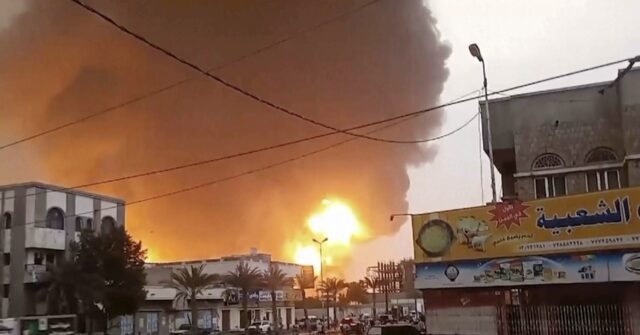Israel is reportedly gearing up for a significant military retaliation against the Houthis in Yemen, following a recent missile attack from the group that set off air raid sirens in central Israel. The Times of Israel indicated that while the missile was intercepted, it still led to precautionary measures, including bomb shelter orders for residents in Tel Aviv and nearby areas. Notably, debris from the interception struck an apartment building in Jerusalem, although no injuries or fatalities were reported. This incident underscores the ongoing threat posed by the Iranian-backed Houthi rebels, who have demonstrated their capability to target Israeli territory with ballistic missiles.
The Jerusalem Post has highlighted that this latest missile attack has prompted Israel to reconsider its approach to dealing with the Houthis, marking a turning point in its military strategy against Iran’s regional proxies. Unlike previous conflicts with other militant groups like Hamas and Hezbollah, the Houthis have managed to maintain an effective level of aggression against Israel, prompting calls for a decisive response to curb their operations. After a series of attacks, including significant military responses from Israel in July and September, the recent missile launch seems to have strained Israeli patience further. With the Houthis seemingly emboldened, Israeli officials are signaling that a robust counteraction is on the horizon.
Interestingly, the timing of this anticipated retaliation coincides with the Houthis’ resurgence in aggression following a relative period of quiet. It has been noted that had the Houthis not launched their missile attack after December 1, Israel might have opted to refrain from any military response. However, the continued provocations from Yemen have led to a palpable shift in the Israeli government’s strategic calculus, emphasizing a need to address what they perceive as an escalating threat. This shift may reflect broader concerns about Iran’s influence in the region via its proxy forces and the necessity of demonstrating military capabilities to deter further attacks.
The context of Israel’s military engagement with Houthi rebels also highlights the intricate dynamics of U.S. foreign policy in the Middle East. While the Trump administration classified the Houthis as a terrorist organization, the Biden administration reversed that designation, aiming to connect humanitarian assistance for Yemen with broader diplomatic overtures to Iran. This policy shift was partly motivated by the desire to negotiate a deal that would limit Iran’s nuclear ambitions. Nevertheless, the reality on the ground reveals the complexities of these diplomatic efforts, as the Houthis continue to pose a tangible threat to Israeli and regional security.
Amid these tensions, Iran’s broader strategy of supporting various militant groups, including the Houthis, remains a significant concern for global security. The Houthis’ missile capabilities and their willingness to engage in conflicts that extend beyond their immediate geographic confines serve as a reminder of Iran’s influence. Although other Iranian-backed groups, such as those in Iraq, have not targeted Israel recently, the consistent pattern of aggression from the Houthis indicates a carefully calibrated approach by Tehran to challenge Israeli interests and assert its influence in the region. Such developments portend a challenging landscape for both Israeli security operations and U.S. diplomatic strategies.
Overall, the situation surrounding the Houthis and their missile attacks on Israel illustrates the complex interplay of regional power dynamics, military strategies, and international diplomacy. As Israel braces for possible retaliation, the ramifications of its actions could have lasting impacts on the ongoing conflict with Iran and its proxies. Moreover, the evolving nature of U.S. involvement and relations with both Israel and Iran will undoubtedly play a pivotal role in how these tensions are navigated moving forward. The ongoing cycle of aggression and retaliation between state and non-state actors emphasizes the fragility of security in the region and the broader implications for global peace and stability.

